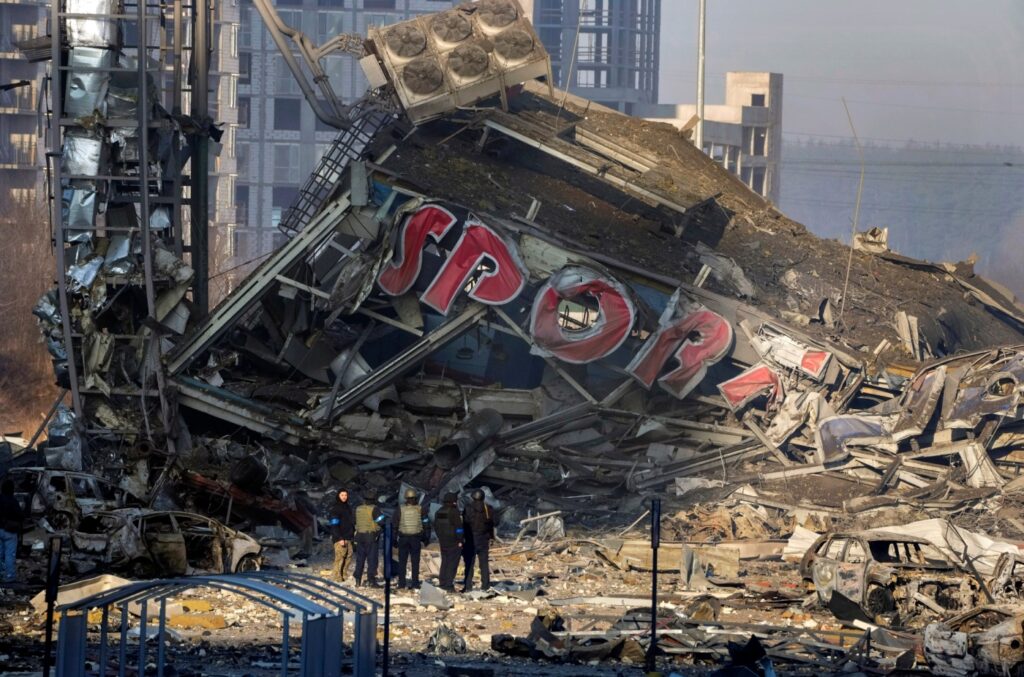
A debate has emerged about whether the U.S. should implement a “no-fly zone” over the skies of Ukraine. Ukrainian President Volodymyr Zelensky requested that the U.S. create this no-fly zone over Ukraine when he addressed the U.S. Congress. As many already recognize, the U.S. implementing such a no-fly zone has the potential to bring unfathomable consequences.
While this debate is extremely important, another development needs further examination: entangling allies—especially exemplified in Poland’s offer to send fighter jets to Ukraine. At essence, Poland sought to send an expected offer of MiG-209 fighter jets to Germany so that the U.S. could send them into Ukraine. In an act of wisdom, U.S. officials dismissed this offer, citing that it did not want to have NATO directly involved in the war.
Still, what is to prevent Poland, or another NATO member, from making a bolder decision in the war in Ukraine? What if the U.S. becomes unintentionally entrapped in this war? After all, Carl von Clausewitz asserted in his infamous book, On War, that war is based on chance and uncertainty. We do not want to be caught on the wrong side of chance in this war in Ukraine.
The alarm bells of this war spreading can already be heard ringing in the distance. Entangling alliances, or as Barry Posen in his book, Restraint: A New Foundation for U.S. Grand Strategy, defines as “reckless drivers,” pose as the main catalyst to the potential widening of this war.
The main reckless drivers that are at risk of widening the war in Ukraine are those in NATO. Membership in this alliance comes with a collective security guarantee — known as Article 5. Essentially, if one country is attacked, all members will go to war. Such a provision is especially disturbing with the ongoing war in Ukraine.
For one, Russia has issued a warning to the U.S. that Russia would attack American military equipment shipments sent into Ukraine. Of course, this warning is indirectly extended to NATO members as well.
There is no guarantee that these NATO countries will be arm-in-arm with every decision of the U.S. in the West’s confrontation with Russia over Ukraine. Countries pursue their own perceived national interests. Should one of these NATO members decide to send military supplies and equipment to Ukraine, it will risk putting a target on its back for the Russians to attack these supply lines. In fact, our eastern NATO allies are already sending deadly weapons to Ukraine to fight and annihilate Russian soldiers — increasing the risk of Russia attacking one of these members. The sinking of the Lusitania during World War I comes to mind as a synonymous case of a country at war attacking its rival’s supply routes of military equipment.
What’s more, the NATO countries bordering Ukraine, such as Romania, Slovakia, and Hungary,should be cause for concern for the U.S. Whether the attack is intentional or unintentional, these countries are at risk to Russian missiles and bombs. Russian attacks on Ukraine have inched westward, one of them being upon a base near the city of Lviv, close to Poland. All that is needed for NATO to go to war against Russia is a single missile, or bullet, to cross over into one of these countries.
Related Articles
California’s gun restrictions are a failure
Ending federal pot prohibition is a no-brainer
Facial recognition by police: Ban it
Is California doing all it can to save lives?
Will Big Tech and the mainstream media learn their lesson after Hunter Biden debacle?
The war in Ukraine has been trudging along with deadly and abhorrent consequences: a minimum of 549 civilian deaths, over 2 million refugees, and cities reduced to rubble, such as what has happened to the city of Mariupol. These are the costs of war, and this is only the beginning. Why increase these costs with the lives of Americans? This war must not spiral out of control to envelop more nations and take more lives.
The pleas of George Washington in his “Farewell Address” need to be pondered over once again. Our first president warned us of the perils of becoming entangled with the interests and fates of other nations. The lessons of history can always be used as a guide for our present problems. War may never go away. Still, it is up to us to prevent war from becoming rampant and completely uncontrollable. We must remain vigilant of America’s independence in this world even as the storms of war can be seen growing darker over the West. It is our duty as citizens of a republic to do so.
Benjamin Giltner is a Contributing Fellow at Defense Priorities and a first-year graduate student at the George H.W. Bush School of Government and Public Service. He is pursuing a track in national security and diplomacy, as well as concentrations in international politics and grand strategy, Europe, and U.S. Defense Policy and Military Affairs. Benjamin is interested in issues pertaining to grand strategy, Europe, diplomacy, international politics, Russia, China, national security, and conflict resolution.
